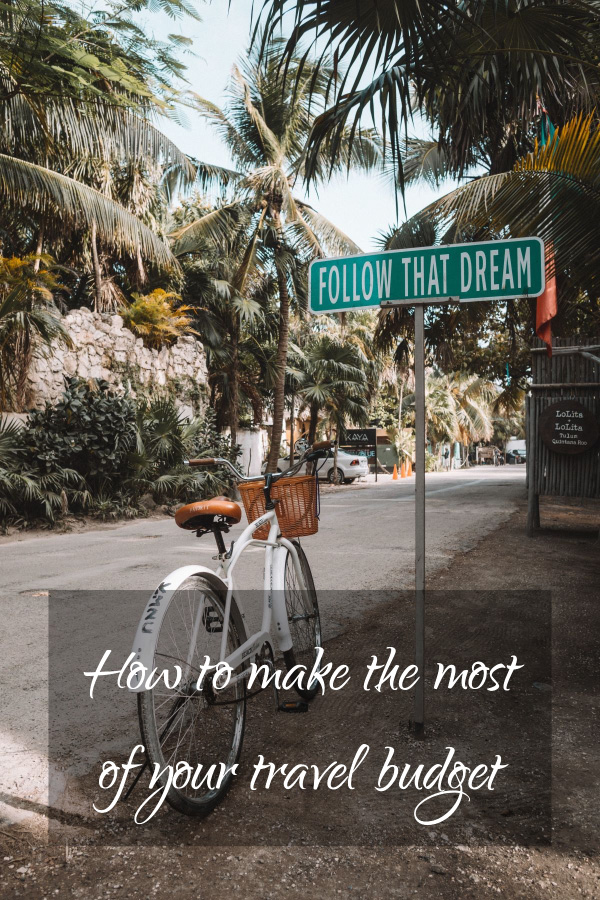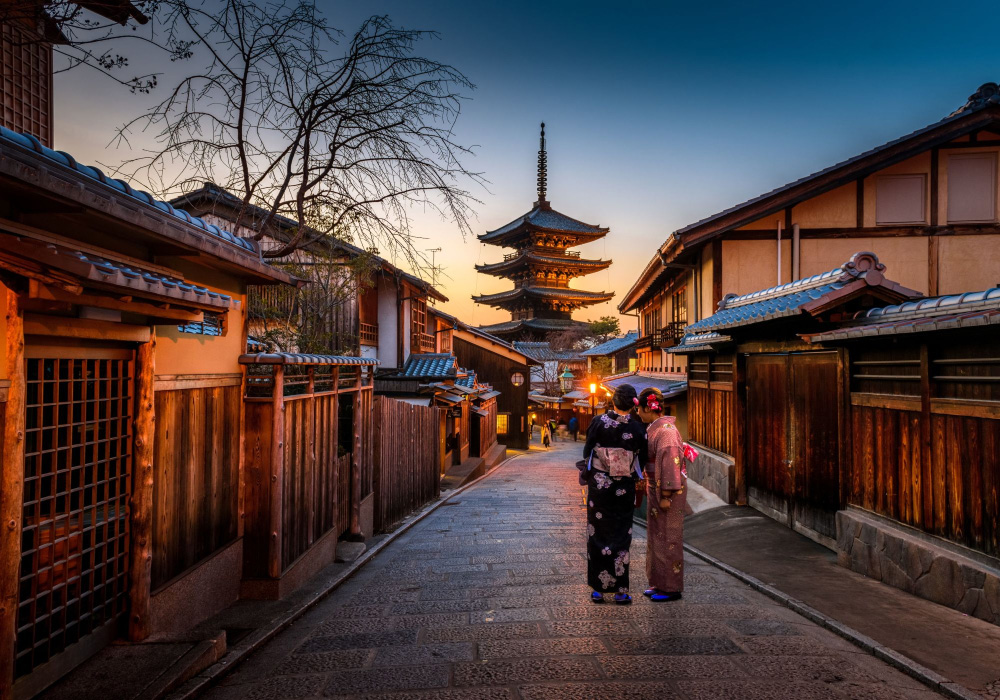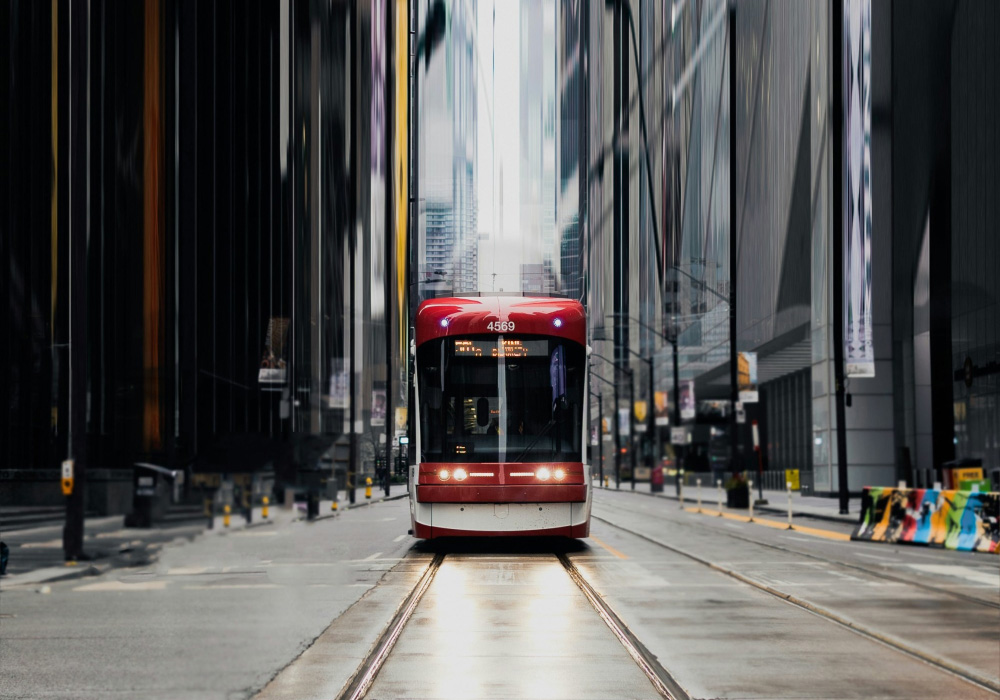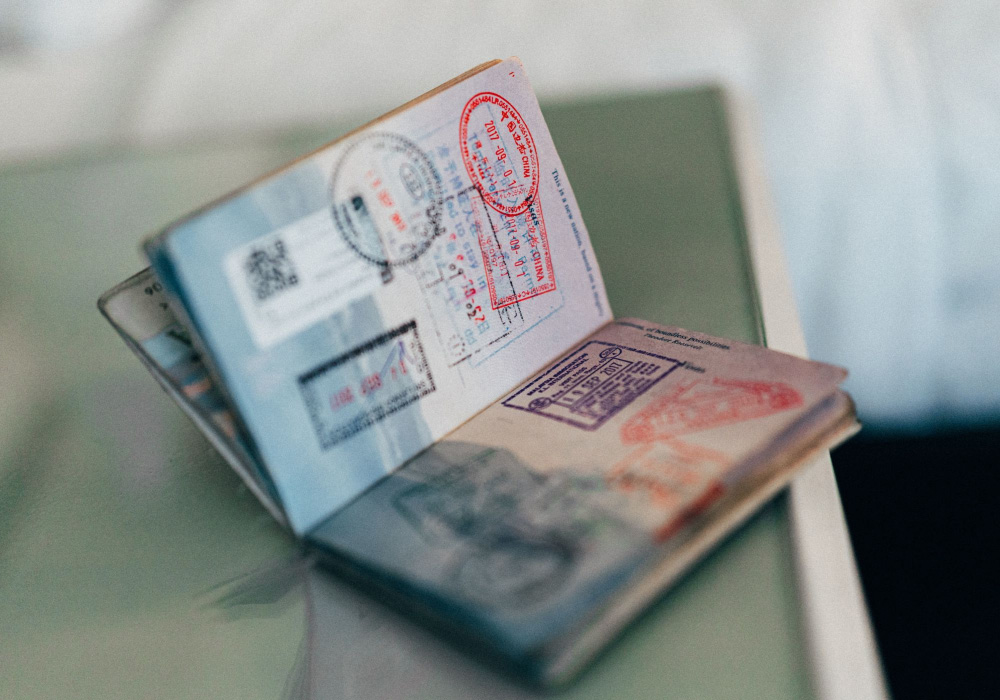Travel farther, spend smarter. This guide reveals practical ways to maximize your budget without sacrificing unforgettable experiences.
Looking to save money while travelling doesn’t mean sacrificing fun or memorable experiences. With a few smart strategies, travellers can make every dollar stretch and get the most out of their adventures—no matter the destination or duration.
Whether planning a quick weekend escape or a longer journey, budget-conscious travel is entirely achievable. With thoughtful preparation and clever hacks, unforgettable trips don’t have to come with a hefty price tag.
This guide explores a range of practical and proven strategies to help you stretch your travel budget. From setting clear financial boundaries to uncovering hidden gems, you'll learn how to make informed choices that keep your finances in check while maximizing enjoyment. We’ll walk through budgeting, destination research, booking tips, transportation choices, and much more—all designed to help you explore the world without draining your wallet.
Start with a clear budget
The foundation of any budget-friendly trip is a realistic financial plan. When you know how much you can afford to spend, you're in a stronger position to prioritize what matters most and avoid unexpected costs that can derail your journey.
Start by determining your overall travel budget. This includes flights, hotels, food, activities, local transport, and an emergency buffer. Once you’ve identified your total limit, you can break it down into manageable categories.
Here are some steps to help you determine your total spend:
- Calculate your savings: Check your bank account and any other sources of funds you might have.
- Set a maximum limit: Decide on the maximum amount you are willing to spend.
- Consider travel duration: The length of your trip will affect your budget. A more extended trip means more expenses.
- List all potential expenses: Include transportation, accommodation, food, activities, and emergency funds.:
By determining your total spending, you can start your travel planning with a clear idea of your financial limits.
Allocate funds wisely
After setting your total budget, the next step is to allocate funds wisely. This ensures you have enough money for all aspects of your trip.
Consider these tips for smart fund allocation:
- Prioritize essential expenses: Start with essentials like transportation and accommodation. Allocate a larger portion of your budget to these categories.
- Set daily spending limits: Divide your food and activity budget by the number of days you will be travelling. This helps you avoid overspending each day.
- Reserve some funds for unexpected expenses: Things may not always go as planned. Having a small emergency fund can save you from stress.
- Look for free or low-cost activities: Many destinations offer free attractions. Research and include these in your plan to save money.
By allocating your funds wisely, you can enjoy your trip without worrying about running out of money. This approach ensures that you get the most out of your travel budget while keeping your finances in check.
Choose your destination strategically
Travelling can be a fantastic experience but often comes with a hefty price tag. Choosing the right destination can make a significant difference. By doing research ahead of time, travellers can uncover places that offer incredible value without a high cost. Affordable countries like Vietnam, Portugal, and Mexico provide rich cultural experiences, delicious food, and breathtaking landscapes without breaking the bank.

Identifying affordable locations
Some places offer a lot of value without costing a fortune. Here are a few tips to help you identify affordable locations:
- Compare costs: Look at the cost of living in different places. Websites like Numbeo can help you compare food, transportation, and accommodation prices.
- Check for deals: Many travel websites offer deals on flights and hotels. Sites like Skyscanner and Google Flights can help you find the best rates.
- Read travel blogs: Bloggers often share tips on cheap travel destinations, which can give you ideas for where to go without spending too much.
Focusing on these affordable locations can help you stretch your travel budget further. This means more money for experiences, souvenirs, and local cuisine.
Consider off-peak travel
Timing is just as important. Travelling during off-peak seasons means lower flights, accommodations, and activities prices. Avoiding major holidays and school breaks can unlock quieter experiences and better deals. Those with flexible travel dates can make the most of price drops and last-minute discounts. Here are some key points to consider:
- Avoid holidays: Major holidays and school vacations are peak travel times. Try to plan your trips during less popular times.
- Research off-peak times: Different destinations have different off-peak seasons. For example, Europe is less crowded in the spring and fall.
- Be flexible: You can find better deals if your dates are flexible. Use flexible date search options on travel websites to see when it’s cheapest to fly.

Travelling off-peak can significantly reduce your overall budget. Plus, you’ll enjoy a less crowded and more relaxed experience.
Book smart
Smart booking habits also help stretch a budget. Comparison tools like Skyscanner, Kayak, and Google Flights are essential for scoring deals on flights, car rentals, and accommodations. These tools aggregate prices from various websites, giving you a clear picture of the most cost-effective options. Setting price alerts and exploring package deals or membership discounts can also yield serious savings.
Here are some tips on using these tools effectively:
- Set price alerts: Many comparison tools allow you to set alerts for specific routes or accommodations. This helps you stay informed about price drops.
- Compare multiple sites: Use tools like Google Flights, Skyscanner, and Kayak. Each tool may show different prices, so comparing them ensures you get the best deal.
- Flexible dates: If your travel dates are flexible, you can find cheaper options. Many tools let you search for the lowest prices within a range of dates.
Look for package deals
Package deals can save you a lot of money. They often include flights, hotels, and sometimes even car rentals. Here’s how to find and make the most of package deals:
- Travel agencies: Many travel agencies offer package deals. They negotiate with airlines and hotels to provide discounted rates.
- Online travel platforms: Websites like Expedia, Travelocity, and Priceline offer bundled deals, which can be cheaper than booking separately.
- Membership discounts: If you have memberships with organizations like AAA or AARP, they often provide travel packages at reduced rates.
Travel hacks
One of the best ways to save money is by using travel hacks. These clever tips can help you cut costs without sacrificing the quality of your trip. Let's explore some of the most effective travel hacks to help you get the most out of your travel budget.

Utilize reward programs
Reward programs are an excellent way to save money on travel. Many airlines, hotels, and credit card companies offer reward programs that let you earn points or miles for every dollar you spend. These points can be redeemed for flights, hotel stays, and other travel-related expenses.
Here are some tips to make the most of reward programs:
- Sign up for multiple programs: Don't limit yourself to one reward program. Sign up for several to increase your chances of earning points.
- Use a travel rewards credit card: Many credit cards offer bonus points for travel-related purchases. Use these cards to pay for flights, hotels, and even meals.
- Book flights and hotels through program websites: Many reward programs offer extra points for booking through their websites.
- Keep track of your points: Use apps or spreadsheets to keep track of your points and their expiration dates.
Using reward programs can significantly reduce your travel costs. It just takes a bit of planning and organization.
Find discounted activities
For activities, there are plenty of budget-friendly options. Many cities offer free festivals, public concerts, and cultural events. Travellers can find deals on local attractions through websites like Groupon or local tourism boards. And for hidden gems, there’s no better guide than a local—insider tips often lead to some of the most rewarding (and affordable) experiences. Here are some tips to help you save on activities:
- Check local tourism websites: Many cities offer discounts on attractions and tours through their official tourism websites.
- Look for free events: Search for free events such as festivals, concerts, and museum days.
- Use daily deal sites: Websites like Groupon and LivingSocial offer discounts on activities and dining.
- Ask locals: Locals can provide great tips on free or cheap activities.
Accommodation choices
Travelling on a budget doesn't mean you have to sacrifice comfort or fun. Making smart decisions about where you stay can significantly stretch your travel dollars. Being flexible and open-minded about accommodation choices allows you to save money and enjoy a memorable trip. Below are some tips to help you make the most of your travel budget through savvy accommodation choices.
Opt for budget-friendly options
Choosing budget-friendly accommodations can save a substantial amount of money. Here are some options to consider:
- Hostels: Hostels are ideal for solo travellers or those on a tight budget. They offer dormitory-style rooms and shared facilities, and many now offer private rooms as well.
- Budget hotels: These hotels offer basic amenities at a fraction of the cost. They are often located in less touristy areas but still accessible.
- Guesthouses: Typically family-run, guesthouses offer a more personal touch. They can be a cheaper alternative to hotels.
- Motels: Perfect for road trips, motels provide basic accommodations and are usually located near highways.
Consider using price comparison websites to find the best deals. Websites like Booking.com, Expedia, and Agoda can help you compare prices and read reviews from other travellers. Always check if the final price includes taxes and fees. Also, look for discounts or promotions, especially for longer stays.
Consider alternative lodging
Alternative lodging options can offer unique experiences and save money. Here are some ideas:
- Vacation rentals: Platforms like Airbnb and Vrbo offer homes and apartments for rent. These can be more affordable, especially for families or groups.
- House sitting: Websites like TrustedHousesitters connect travellers with homeowners needing house sitters. This can provide free accommodation.
- Home exchanges: Swap homes with someone in another destination. This can be arranged through platforms like HomeExchange.
- Farm stays: Stay on a working farm and experience rural life. These are often cheaper than traditional accommodations and offer a unique experience.
Alternative lodging can also be more flexible and homely. For instance, vacation rentals usually have kitchens, allowing you to save money by cooking your own meals. House-sitting and home exchanges provide a local experience, often in residential areas away from tourist crowds.
Dining on a budget
Eating well on a budget is easier than it seems. Travellers can enjoy authentic meals at a fraction of the price by avoiding tourist hotspots and seeking out local eateries. Asking locals for recommendations, using food apps, and visiting busy spots (a good sign of quality and value) all contribute to better dining experiences. Planning meals, setting a daily food budget, and packing snacks for the road also help keep spending in check.
Explore local eateries
One of the best ways to save money on food is to eat where the locals do. Local eateries often offer authentic dishes at lower prices compared to tourist spots. By exploring these hidden gems, you can enjoy unique flavours and experiences.
Benefits of eating at local eateries:
- Authentic cuisine: Taste the real flavours of the region.
- Lower prices: Local spots are usually cheaper than popular tourist restaurants.
- Support the local economy: Your money goes to local businesses.
Here are some tips to find the best local eateries:
- Ask locals for recommendations. They know the best places.
- Use food apps and websites to find popular local spots.
- Walk around and look for busy places. Busy usually means good food.
For example, in many Asian countries, street food stalls offer tasty and affordable meals. In Europe, small family-owned cafes provide hearty meals at reasonable prices.
Plan meals ahead
Planning your meals can help you stay within your budget. You can avoid overpriced and unhealthy options by knowing where and what you'll eat. Here are some strategies to plan your meals:
Meal planning tips:
- Research ahead: Look up local food options and prices.
- Set a daily budget: Decide how much you will spend on food each day.
- Pack snacks: Bring snacks for when you’re on the go.
Consider these meal-planning techniques:
- Breakfast: Choose a hotel with a complimentary breakfast or buy groceries for a simple meal.
- Lunch: Eat at a local eatery or prepare a picnic with items from a local market.
- Dinner: Treat yourself to a nice meal, but keep it within your budget.
Transportation tips
Transportation is another area where big savings can be made. Public transit is often the most affordable way to explore a city, especially when day or weekly passes are available. Where that’s not possible, ride-sharing apps like Uber and Lyft and local alternatives can offer economical and convenient transport options. Shared rides and promo codes provide further ways to cut costs.
Use public transit
Public transit is often the most cost-effective way to get around a city. It can save you money while giving you a chance to experience the local culture.

- Research transit options: Before your trip, look up the public transit options available at your destination. Most cities have websites or apps that provide information on routes, schedules, and fares.
- Purchase transit passes: Many cities offer daily, weekly, or monthly passes that can save you money compared to individual tickets. These passes often provide unlimited travel within a certain period.
- Learn the local transit etiquette: Each city has its own transit rules and norms. Familiarize yourself with these to blend in and avoid any misunderstandings.
Consider ride shares
Ride-sharing services can be a convenient and affordable way to get around, especially if public transit isn't an option.
- Compare prices: Use apps like Uber, Lyft, or local ride-sharing services to compare prices. Some services might offer promotions or discounts, which can help save money.
- Share rides: Many ride-sharing apps offer a carpool option, allowing you to share the ride with other passengers going in the same direction. This option is usually cheaper than a private ride.
- Check for safety features: Ride-sharing apps often have safety features such as GPS tracking, driver profiles, and emergency contacts. Make sure to use these features for a safe travel experience.
Ride-sharing can be particularly useful for late-night travel or when visiting areas not well-served by public transit. It's a flexible option that offers comfort and convenience without breaking the bank.
Maximize experiences
Finally, getting the most from a limited budget helps prioritize must-see attractions. Making a list and ranking it by importance ensures no highlights are missed. Many cities also offer free access to public museums, parks, or seasonal events—ideal for travellers who want enriching experiences without spending extra.
Prioritize must-see attractions
One way to maximize your travel experiences is to prioritize must-see attractions. These are the places or activities that you absolutely don't want to miss. Before your trip, start by making a list of these attractions. Then, plan your itinerary around them.
Here are some tips to help you prioritize:
- Research ahead of time: Look up the top attractions at your destination. Read reviews and travel blogs to see what others recommend.
- Create a list: Write down the attractions you are most excited about. Rank them in order of importance.
- Check opening hours: Some attractions may have limited hours or days when they are closed. Plan your visit accordingly.
- Look for discounts: Many attractions offer discounts for booking in advance or visiting during off-peak times. Check their websites for deals.
- Combine visits: If multiple attractions are close to each other, plan to visit them on the same day to save time and money.
Seek free events
Another great way to maximize your experiences on a budget is to seek out free events. Many cities offer a variety of free activities that can be just as enjoyable as paid ones. These events can add a lot of value to your trip without costing you a dime.
Consider the following tips to find free events:
- Check local listings: Websites, local newspapers, and community boards often list free events such as concerts, festivals, and workshops.
- Visit public spaces: Parks, beaches, and plazas often host free events and activities. These can include outdoor movies, yoga classes, and markets.
- Explore museums and galleries: Many museums and galleries offer free entry on certain days or during specific hours. Check their schedules online.
- Attend cultural festivals: Look for local festivals celebrating food, music, and art. These events are often free and provide a great way to experience local culture.
Final thoughts
Budget travel isn’t about limiting your options but unlocking smarter ones. With a thoughtful approach to spending, you can travel further, stay longer, and enjoy more. Every decision, from picking affordable destinations to booking strategically, contributes to a more meaningful and financially sustainable journey.
With a bit of planning, wise decision-making, and the right mindset, budget travel can be just as fulfilling—if not more so—than luxury vacations. Budget travel challenges you to be creative and resourceful, often leading to more genuine connections and unforgettable stories.
It's all about focusing on what matters most: the experiences, the memories, and the joy of discovery. Happy travels!




Comments powered by CComment